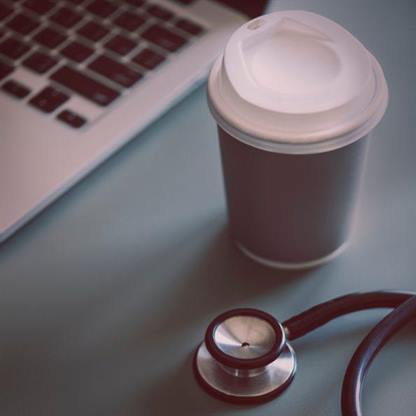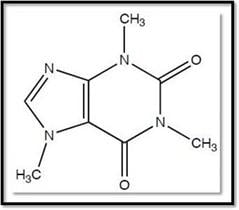When we initially published our old page we were collating some Coffee Health Facts we found around the internet. While we still maintain that coffee on the whole helps your health, we are no longer collating facts as often. So Below is a summary of our pre 2010 fact collection, with a few minor updates.
Healthy Discussion
With many years of experience behind us as coffee drinkers we started reading more and more about the bad wrap coffee seems to have got, with no one standing by it side. So we collect references that show that coffee is mostly good for you, good for your liver, good to assist the glucose intolerant, good for you if you are susceptible to Parkinson’s…
Harvard Medical School
A summary from some Harvard Medical School articles we found on their site:
Coffee may protect against disease, says the Harvard Health Letter
- Zero increase in risk for high blood pressure.
- Coffee drinkers 50% less likely to get liver cancer than nondrinkers, and there are a few studies have found ties to lower rates of colon, breast, and rectal cancers.
- Link between cholesterol increases and decaffeinated coffee
- Heavy coffee drinkers half as likely to get diabetes as light drinkers or nondrinkers.
- Coffee seems to protect men against Parkinson’s disease.
For copyright reasons we have not listed all the articles Read more by clicking here
Another Harvard article regarding the moderate drinker, coffee is safe says Harvard Women’s Health Watch.

Some sites to refer to
Everywhere we look we found sites talking about health and coffee, here are some we found, some may no longer work, we remove those we can:
| Reference | Info/Link |
|---|---|
| The stimulatory effects of caffeine may be nothing more than an illusion | Science Daily: Coffee consumption unrelated to alertness: Stimulating effects may be illusion. |
| WebMD | Health Benefits of Coffee – Coffee and Health. |
| Health Food | Washington Post Drinking up to 5 cups is good for you |
| Anti Ageing | Healthy Nutrition Effects of Coffee as an anti ageing product. |
| BBC home | Coffee is ‘health drink’ says Italian. |
| Ask the Expert | Dr. Rob van Dam: Ask the Expert: Coffee and health. |
| Longer Life? | Study: Drinking four cups of coffee daily lowers risk of death |
| Good and bad news. | That cup of joe may be good for many, but there are downsides as well. Caffeine for Your Health — Too Good to Be True? |
| Coffee and Type 2 | Medically reviewed by George Krucik MD, MBA Coffee’s Effect on Diabetes. Coffee and Lower Risk of Type 2 Diabetes: Arguments for a Causal Relationship |
| Coffee and the Liver | Coffee May Cut Cirrhosis Risk – “Drinking coffee seems to protect alcohol drinkers from liver disease, a new study suggests”. |
| Coffee and Caffeine Protect against Liver Injury Induced by Thioacetamide. Coffee intake has been inversely related to the incidence of liver diseases. | |
| Antioxidents | Coffee found to be high in health-giving antioxidants. “Coffee might soon be considered a health drink following a study showing it is a surprisingly rich source of anti-cancer agents”. |
| Healthy Drinking | Study: Drinking Coffee Has Health Benefits “Coffee is America’s No. 1 source of antioxidants, an important compound that protects your body from disease… study ranked black tea as second source” |
| Reduces heart failure | This study found that compared to no consumption, an inverse relationship between coffee and heart failure was seen for 4 servings/day. |
| Coffee as a fibre | Need Fibre? Have Some Coffee: New study shows that coffee may be a source of dietary fibre, but that does not mean you should give up vegetables and fruit. |
| Coffee contains over 100 polyphenols | Health line: Coffee contains antioxidants like phenolic acids and flavonoids that may help protect against chronic conditions like diabetes, Alzheimer’s disease, and some cancers. |
Articles found online worth reading:
| Title | Read more |
|---|---|
| Mom Gives 7-Year-Old Son Coffee Daily to Treat ADHD | ABC News story treating ADHD with coffee |
| Coffee helps beat depression in women | Harvard study finds coffee may decrease depression |
| Coffee May Protect Against Disease | Study that finds:
read more: Coffee Health Benefits |
| Coffee is safe says Harvard Women’s Health Watch | Despite 20 years of reassuring research, many people still avoid caffeinated coffee because they worry about its health effects. read more… |
| Coffee drinking associated with lower risk of endometrial cancer | This found on a health site 7.5 a connection between coffee drinking and protection against the development of endometrial cancer originally published in the American Association for Cancer Research journal |
Worth a read
There is a lot of mis-information spread about Acrilomide in coffee. Here is a good article Is the acrylamide in coffee harmful to health? – By Jenna Fletcher.

Theobromine is similar in composition to caffeine, with a key difference. Theobromine is similar in composition to caffeine, but differs by one extra methyl group ….
Not so positive articles
Our first slightly negative study that we have found, we are always looking for more: New York Times article: Caffeine Alters Estrogen Levels in Younger Women.
Something to add?
Do you have an article you would like to see here? Contact us and we will added it. So far others have sent us links like:
Fat Free?
A cup of black coffee has zero fat and only a couple of calories, however add milk, cream or sugar and things change.
For reference we have listed some details on how many calories, carbohydrates (carbs), fat and cholesterol, each variety has. The source of these fats: Coffee Association of Canada
| Serving | Additive | Calories | Carbs | Fat | Cholesterol |
|---|---|---|---|---|---|
| Tablespoon | 2% Milk | 8 | .8g | .3g | 1.2mg |
| Tablespoon | Full Cream Milk | 9 | .7g | .5g | 1.5mg |
| Tablespoon | Half & Half | 19 | .6g | 1.7g | 5.6mg |
| Tablespoon | Cream | 30 | .5g | 3g | 10mg |
| Tablespoon | Sugar | 11 | 3g | 0g | 0mg |
| Packet | Sweetener | 0 | 0g | 0g | 0mg |
Check the chemistry or bio-chemistry
Coffee has a number of trace minerals (Thiamin, Niacin, Folate, Phosphorus, Magnesium, Manganese, Calcium to name a few) and is a good source of Potassium, Pantothenic Acid and Riboflavin. A 180ml cup of brewed coffee may contain 2 to 4 milligrams of Sodium, that said most of the sodium content comes from the water used to brew the coffee.
Caffeine
The chemical component of coffee that has caused all the commotion is 3,7- dihydro-1,3,7-trimethyl-1H-purine-2,6-dione. The more commonly used technical name is 1,3,7-trimethylxanthine. Both names describe the chemical structure of the caffeine molecule.

Digestion
This molecule is one of many (over 700) within a typical cup of coffee. Acid in the stomach is unable to break down the caffeine molecule. Which means that one-sixth of a dose of caffeine is absorbed through the blood vessels in the stomach. Therefore most of the remainder is absorbed through the wall of the duodenum, the first section of the small intestine. Next stop for the caffeine molecule is the liver, then the heart and brain. The importance of this is that it takes 30 to 60 min before it is in your system. This means it is not an instant pick me up.
Use it or lose it
Since Caffeine is relatively insoluble in fat, it does not accumulate in body fat, it is a use it or lose it chemical and its half life is dependent on a body weight and how efficient (i.e. healthy) a person’s body is. Starting with an efficient body the half life of the caffeine molecule is 2 hours and the longest the half life is, is 10 hours. The liver metabolizes caffeine each time blood containing caffeine passes through it (this may be why incidence of liver disease is reduced for coffee drinkers). Caffeine removed from the blood is replaced by more caffeine returning from the body’s other fluids. This process continues until eventually all of the caffeine has been metabolized by the liver. This means that within a maximum of 12 hours all caffeine is removed from your system.
Effect
Since caffeine enters the bloodstream it is capable of affecting almost every part of the body. For each person the side effects will vary in intensity, however as a guide these are recognized possible side effects of having coffee in your bloodstream:
- Some studies have found a statistically insignificant increase in heart rate in some subjects, while others have had an initial decrease in heart rate plus an increase.
- Caffeine heightens the part of the brain that responds to carbon dioxide levels in the blood causing increased rate breathing, and since it strengthens the action of the diaphragm the breaths can be deeper too.
- Another know side effect is that caffeine causes fats to move from bodily deposits into the bloods, if taken between meals, and if taken with meals increases the rate in which food is transformed to usable energy (why it is band in sports), good for losing weight and exercising
- The temperature-regulating centres of the body are stimulated by caffeine, which consecutively produces an increase in body temperature. To sustain this change, energy that might have been deposited as fat is used. Even if the body is at rest a greater amount of food is burned
- Caffeine increases the mobility of sperm thereby enhancing fertilization
Stimulants in General
Stimulants have received a lot of bad press mostly because of what is call the stimulant cycle. The best way to check if you are caught in a stimulant cycle, is to give up all stimulants for about a week. So what are they?
- Caffeine – so no coffee, tea, cola, chocolate, Red Bulls or similar
- Sugar – so no sweets, no jams, no sauces with sugar (e.g. ketchup or tomato sauce) etc, no liquid medicines. Refined Sugar is VERY unhealthy for you. Some believe it should carry a surgeon generals warning
- Hi GI foods – this is an interesting one. You will need to check a local list, but basically white flour-based (bread pasta etc) products and items like short-grained rice
- Fatty foods – no French fries, no crisps, nothing that has seen oil of any type. As humans our brian loves these foods. Did you know that a grilled burger has more fat than a roast potato!
- Over-the-counter medicines – the majority of addicts rely on over the counter medicine (a lot of them have Caffeine).
- Illegal substances (illegal in most countries that is).
Coffee Health Facts: Our Solution
Stated as an unqualified laymen, once you understand that the stimulant cycle is about 2 – 4 hours, and you have cleansed you body by removing the above from you diet (obviously you first speak to your doctor) then my advice is keep away from them until you have been awake at least for 2 hours, and had a non-stimulant-based breakfast. Then you may start a cycle but it is not perpetuating
There is a lot of literature to read on this, but “6 Weeks to Superhealth” (by Patrick Holford) for me was an interesting read. Once the cycle is broken drinking coffee has no effect. So for example wake up at 06:00 and you can should only have your first cup of coffee at 09:00 – or after a non stimulant breakfast.
I will say though that I am neither a doctor nor dietitian, I only know what has worked for me. If I follow the “9 o’clock” rule I find that the cycle does not dominate my living style. And I regularly check this by removing stimulants from my diet and seeing if the cycle has started – Warren Machanik



